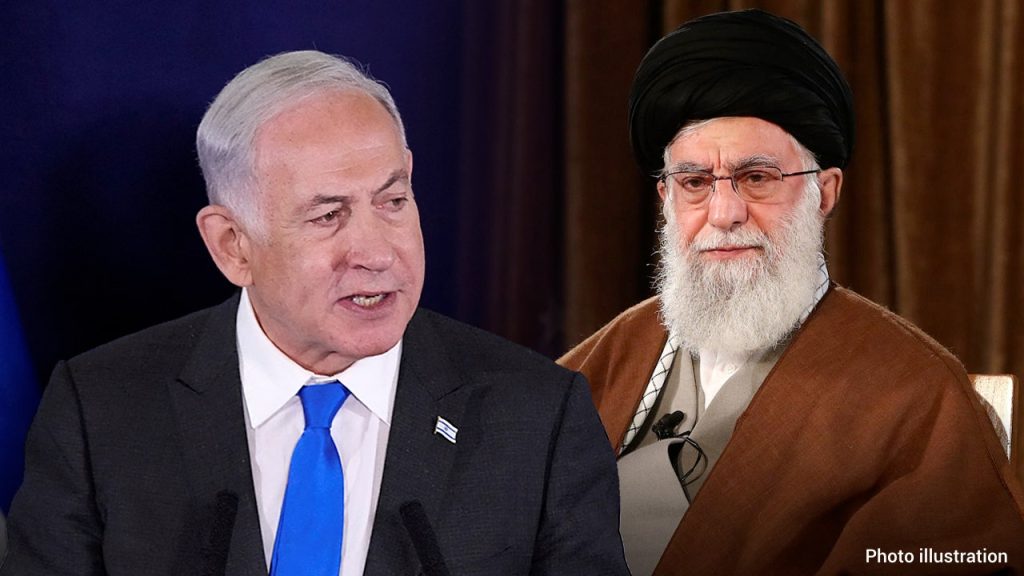Israeli Prime Minister Benjamin Netanyahu emphasized the importance of preventing Iran from attaining nuclear weapons during a recent speech to IDF soldiers, stating that this remains a top priority for Israel. This comes in response to threats made by Iranian Supreme Leader Ali Khamenei against Israel, indicating that Tehran is prepared to retaliate following recent air strikes. Netanyahu suggested that Israel could potentially target Iranian nuclear facilities in the future, in line with comments from the IDF promising to escalate its capabilities in the event of further attacks from Iran. The U.S. has cautioned Israel against striking Iran’s energy infrastructure, fearing the potential for sparking a broader regional conflict. Reports indicate that Iran may be planning a retaliatory strike after the upcoming U.S. presidential election.
The ongoing back-and-forth exchanges between IDF and IRGC forces may soon involve additional Iranian-backed groups, expanding beyond Hamas and Hezbollah. Reports suggest that Iran may choose to carry out its next attack through an Iranian-backed militia in Iraq, rather than directly from its own territory. The transfer of short-range ballistic missiles to proxies in Iraq in 2018 has raised concerns about the potential for attacks on northern Israel. While Syria would be more geographically optimal for such strikes, the Syrian conflict and the presence of U.S. forces in Iraq make it a more politically sensitive choice for Iranian proxy forces. By shifting the conflict to Iraq, Iran may be seeking to draw attention away from its own territory and potentially elicit an international response due to the U.S. presence in the region.
Expert analysis of the situation suggests that Iran’s aim in potentially conducting attacks from Iraq is to shield its own infrastructure and command control in Syria from further damage. By provoking Israel in Iraq, Iran may also be attempting to create a political taboo against Israeli strikes in the region, considering the significant American presence there. This strategy would allow Iran to open multiple fronts while minimizing the risks to its own territory. The potential for conflict escalation remains high, particularly as Iran and Israel continue to engage in tit-for-tat exchanges through various proxy forces in the region. The shifting dynamics of the conflict highlight the complexities of the Middle East and the varied strategic calculations being made by all involved parties.
The security threat posed by Iran’s nuclear ambitions and its support for proxy groups across the region underscores the volatile nature of the Middle East. Israel’s commitment to preventing Iran from acquiring nuclear weapons has been a longstanding policy goal, as reflected in Netanyahu’s recent statements. The involvement of multiple actors, including the U.S., Iran, Israel, and various proxies, has created a complex and precarious situation with the potential for rapid escalation. The international community, particularly the U.S., continues to monitor the situation closely and has urged restraint to prevent further destabilization. The coming weeks and months are crucial in determining the direction of the conflict and the extent of its impact on regional security and stability.
As tensions mount between Israel and Iran, the risk of a broader regional conflict looms large. The possibility of an attack on Iranian nuclear facilities, whether by Israel or its allies, could have significant repercussions for the entire Middle East. The choice of targets, timing, and methods of retaliation will shape the course of the conflict and could determine the level of escalation. The role of international actors, especially the U.S., in mediating the crisis and preventing further violence will be crucial in maintaining regional security. The Middle East continues to be a hotbed of political, military, and strategic challenges, with long-standing rivalries and conflicts contributing to a volatile and unpredictable environment. Diplomatic efforts to de-escalate tensions and find peaceful resolutions to conflicts will be essential in preventing a wider conflagration.













